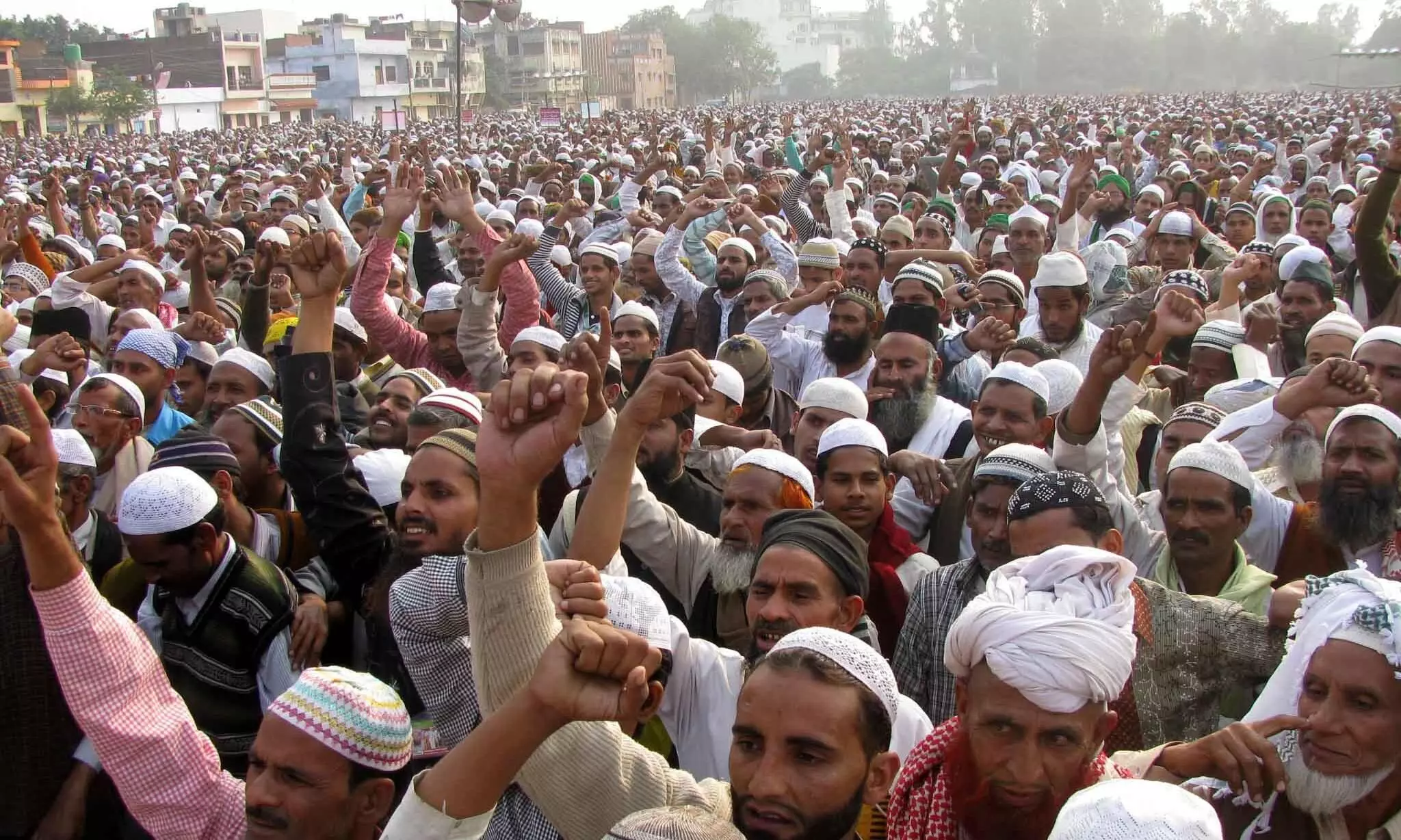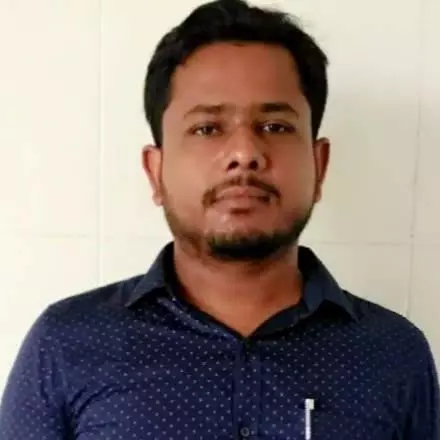
How West Bengal Muslims lose their job quota?
text_fieldsRepresentational Image Only/ Image Courtesy : https://en.shafaqna.com
THE recent publication of the final results by the West Bengal Public Service Commission (WBPSC) for recruitment to the posts of teachers has invited fresh controversies over the absence of Muslim candidates among the panelists for Geography and only one for Arabic whereas the vacant posts were 12 in each subject.
Allegations are thrown on the process that the Director of Madrasa Education (DME) sent the offer letter to the selected Arabic candidate through an e-mail and that has been done without any panelist prepared by the concerned recruiting authority, and the infringement of Other Backward Classes (OBC) reservation policies is also again upheld. Abdus Sattar, the main planner of the English Medium Madrasas, called it 'unfortunate'.
On July 24, the Commission published the list of panelists for Geography of 12 non-Muslim candidates in which 14 Muslim candidates appeared for the interview under the reservation category for the 12 State-run English medium Madrasas under the Department of Minority Affairs. As for Arabic, only one student was offered the candidature and that was even done only through electronic mail whereas the 12 candidates had appeared for the interview.
Naturally, this has sparked furore among the educated Muslim youths, scholars, and students in general along with the candidates who applied for the same posts from social media to print media. Some labelled the concerned administrative officials as pro-right wingers; some saw it as majoritarian politics on the part of the running government to appease the Hindus for their votes which had seen a massive diversion to the BJP in the last Lok Sabha elections and may happen again in the upcoming assembly elections in 2021.
Others called it nepotistic Hindu racism because of the systematic denial and tactful deprivation against the Muslims of the State. An influential Muslim figure of the State even exhorted Muslims to come to the streets to combat the State-sponsored discrimination against the rights of the Muslims.
Muslims constitute 27.01% of the total population of the State, according to the last census. During the last regime in 2009, the then left Front Government of West Bengal had focused on the modernization of the Madrasas and 10% reservation for the Muslims under the OBC category as part of implementing the recommendations of the Sachar Committee Report (2006) and the Rangnath Mishra Commission Report (2007) and had proposed setting up of English medium Madrasas in the 12 Muslim-dominated blocks.
Mamata Banerjee of the Trinamool Congress Party added another 7 % reservation categorizing as OBC-A, which enlists 57 Muslim castes, and OBC- B, which enlists only 26 Muslim castes, out of the total 143 OBC castes, for the minorities of the State after her ascension to power in 2011.
Many questions remain about the status of Muslim education in the State and many people cited bewilderment over the employability of the Muslims in the State government jobs. But when inquired whether there is a serious lack of quality Muslim candidates, it was found that most of the candidates called for the interview had degrees like Ph.D., had joined the school as assistant teacher, and a few of them already joined the State Government-run colleges as Asst. Professor for the same subject.
Sairuddin S.K, a shortlisted candidate for the interview, with Masters in Geography from Rabindra Bharati University hailing from Murshidabad's Berhampore block, had all the requisite qualifications along with the 'desirable' knowledge in Indian and Islamic culture. But his name was impaneled neither in the general category nor in the OBC-A Category. While speaking with this journalist, he vented his anger by saying, "excluding Muslim candidates from the final list is the systematic deprivation that Muslims are made to go through by the State apparatus".
In the case of Arabic, according to sources, 600 to 800 candidates had appeared for the screening test but only 12 of them were shortlisted to be called for interview. The interview was held on 15 July 2019 and the final result was published on 13 August, 2019, as per the list sent by the Chairman.
There was severe criticism of the selection of only one candidate for Arabic. Sk. Najrul Islam, the selected candidate for Arabic and a resident of West Bengal's Khayrasole block in Birbhum district, got a reminder mail from the Director of Madrasa Education with the subject head, 'Consent letter accepting the offer of appointment to the post of Asst. Master in Arabic' on July 17 of this year. The offer letter, referring to the Memo No. 02-ME dated 02.01.2020, reminded him that he was offered the appointment letter on 02.01.2020 'but till date, no reply has been received from him' and gave him 10 days' ultimatum to send filled-in VR Form if interested to join to the said post.
But Islam, when he was contacted and interacted, rejected such claim and said, "Like others who appeared for the interview, I regularly contacted the WBPSC office and the DME office over phone, and with e-mails seeking to know about the publication of the final results after the completion of the interview process and everyone I talked to said that it was yet to come. But when I finally contacted the Chairman of the Commission several times, he asked me to send him all my details. The offer letter came to me as a reminder through an e-mail only after my query to the Chairman on the said date to know if I wanted to join or not within the 10 days' ultimatum." He was shocked and furnished the due tasks and submitted the VR Form to the concerned authority exhaustedly.
While five Muslim candidates are placed in the impaneled list for English (one under OBC-A Category and the rest four like others in general Category), there is no mention of any Category for Mathematics in which four Muslim candidates are impaneled.
However, the violation of the OBC reservation policies is normal for the Commission and for some of the other agencies like educational institutes of the State in the time of implementing it or its roster, it seems. Another interestingly alarming fact has been observed that almost all educational institutions and some recruiting bodies have maintained the OBC reservation policies for the Muslim candidates but the Muslim candidates are hardly placed in the general category. And, thus, many Muslim students who aspire to pursue higher studies either have to search for some other alternate ways or to drop their aspirations.
Sadekul Islam, a Kolkata-based independent social activist, shares his experiences while dealing with the infringement of the OBC reservation policies. He said, "Colleges or universities don't want to implement it. While the Reservation Act for OBCs in West Bengal doesn't have any penal provision for all the violations made, everyone enjoys certain impunity which adds to the existing misery. The mandated roster isn't followed; there is no overseeing authority, the Backward Class Welfare (BCW) department is just a pawn in the hands of the Higher education department and has no claw to implement anything whatsoever."
All India Survey on Higher Education (AISHE) published in 2019 shows that while the participation of the Muslims for pursuing education in graduation level increased to 8 percent enrolment and 4.2 percent in the State and private universities, the employment rate has anegligible and disproportionate increase of 2.3 percent from the 2.1 percent in 2006 after the Sachar Committee Report to 5.7 percent after a long decade in 2016.
It also reported that out of the total 60,076 recruitments of teachers in West Bengal, the Muslim participation is only 4,625, and where the total recruitment for non-teaching staff is 42,709, only 2038 of them are Muslims.
According to the replies to the RTI filed by Sabir Ahmed, a social scientist at Amartya Sen's Pratichi Institute, the representation of Muslims in the Kolkata Municipal Corporation has a slight increase to 5.2% in 2019 from 4.5% in 2008. Muslim participation in the Kolkata Police also had a slight increase to 11.14% from 9.13% in 2008. But in 2015, there were only 3 Muslims recruited out of the total 134 candidates at the West Bengal Police Directorate. He also prepared a chart on the unemployment rates among the marginalized SC, ST and OBC communities. While the rate for SC & ST is 5.14 and 2.71respectively, the unemployment rate for the Muslims is 6.08.
On the one hand, the various data available on the abysmal condition of the Muslim participation in employment exposes the reality of the rhetoric of Muslim appeasement by the average Hindus, the supporters of BJP/RSS and exposesthe rhetoric of 'good improvement of the Muslims' of the present government as political propaganda.On the other hand, it can be said that the slight improvement of the participation of the Muslims in government jobs is mostly because of the implementation of the OBC reservation policies.
It also proves that given adequate opportunities, and the scope for continuing higher education is availableto the Muslims, there would be a further increase in the percentage of enrolment in the colleges and universities and hence in the government jobs, provided however the State machinery maintains transparency and monitoring of cases of violation of the OBC reserved category during the recruitments.
( The author is a journalist based in Calcutta. This Article was first published in Clarion India )























